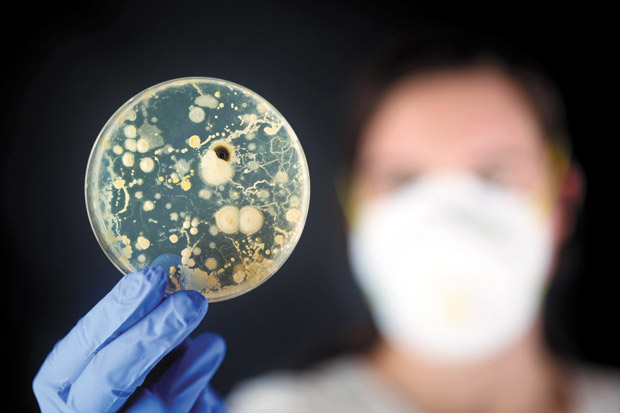Think before you drink by checking for hard water
Your home plumbing could be making you sick and costing you money. Hard water, which contains high levels of calcium and magnesium, may be directly contributing to the buildup of dangerous bacteria in your household pipes. This is a serious problem across the United States, especially when you consider that nearly 90 percent of American homes have hard water.
Left untreated, the water you use to wash your fresh fruits and vegetables may actually contain more bacteria, and the problem isn’t only in the kitchen. When you take a hot shower the steam you are inhaling can also contain the same microbial contamination that is in the rest of your plumbing, exposing you to bacteria such as Legionella, which can cause Legion-naire’s disease.
Normally, the piping used in home plumbing, whether it is copper or PVC, has very smooth interior surfaces that don’t permit bacteria to settle and grow. However, hard water results in scale formation on the interior surfaces of those pipes and that provides a perfect home for bacteria.
Researchers at the School of Sustainable Engineering at Arizona State University found bacteria may grow in pipes filled with both hard scale and soft scale at the same rate. This is important new information because some forms of water conditioning produce this soft scale.
The only solution is to remove both hard and soft scale in the pipes with a traditional salt-based water softener. These work by running the incoming hard water through a resin filter that traps the calcium and magnesium in the water — as well as iron, manganese or radium ions — and replaces them with sodium ions.
A salt-based water softener doesn’t just help protect your health, it protects your appliances, as well. Hard water scaling clogs waterlines and plumbing, forcing appliances to work harder and operate less efficiently. Hard water can reduce the efficiency of water heaters and increase electricity costs by as much as 48 percent, according to the Battelle Memorial Institute. Hard water also damages appliances like water heaters, dishwashers, showerheads and faucets. These must be repaired and replaced more often as a result.
Kitchens also benefit from soft water because it is up to 12 times more effective at cleaning dishes than increasing the amount of detergent used. Researchers found that for clothes washing machines, the most important factor in removing stains from clothing was water softness. Reduction of water hardness was up to 100 times more effective at stain removal than increasing the detergent dose or washing with hotter water. In fact, soft water can reduce soap use by as much as half.
To determine if you have hard water, look for spots and scale buildup on fixtures. You can also test your water yourself to check for hardness with home water testing kits or you can have a water treatment professional do the testing. For more information on water softening and salt health, visit saltinstitute.org.
This article is courtesy of Brandpoint.
